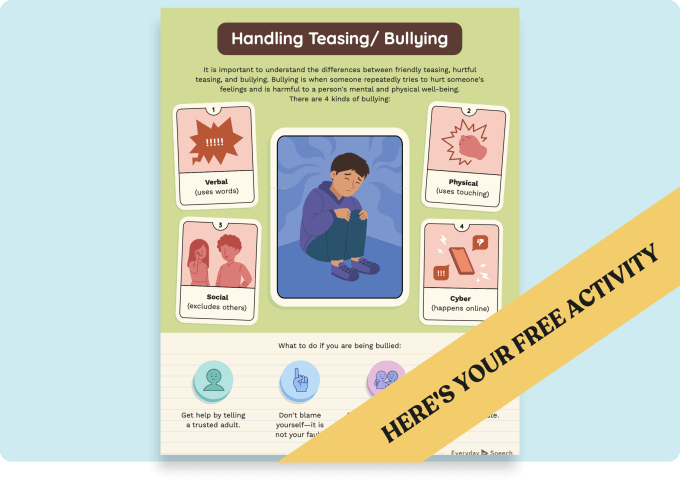Effective IEP Goals for Developing Smooth Conversation Skills
Get free social skills materials
No-prep lessons on self-regulation, emotional recognition, conversation skills, and more.
Sign up hereDownload 50+ Example IEP Goals
Customizable library of strengths-based goals
Introduction
In special education, developing smooth conversation skills is essential for students to build strong social connections and achieve academic success. This blog post focuses on the target skill of transitioning smoothly between conversation topics, and how educators can create effective Individualized Education Program (IEP) goals for elementary students.
Understanding Smooth Conversation Transitions
Smooth conversation transitions involve the ability to shift from one topic to another seamlessly, without causing confusion. This target skill is crucial for students’ learning, social interactions, and overall wellbeing. When students can navigate conversations effortlessly, they can actively participate in class, make friends, and feel confident in their communication abilities.
The Role of Specialists
Various specialists play a vital role in supporting the development of smooth conversation transitions in students:
- Speech-Language Pathologists: They help students improve their language skills, including understanding conversational cues and using appropriate vocabulary.
- Social Workers: They assist students in developing social skills, including recognizing emotions and adjusting their communication style based on the situation.
- Psychologists: They support students in overcoming any emotional or psychological barriers that may impact their ability to engage in smooth conversations.
- School Counselors: They provide guidance and strategies for students to build self-esteem and effectively communicate with their peers and teachers.
IEP Goals for Smooth Conversation Transitions
Here are some SMART IEP goals to help students develop smooth conversation transitions:
- Goal: The student will demonstrate the ability to maintain a conversation by staying on topic for at least three exchanges with a peer or teacher in 4 out of 5 opportunities.
- Strategy: Teach the student to recognize when a topic is ending and how to introduce a new one appropriately.
- Activity: Practice conversations with peers, using visual cues to indicate when a topic is ending and when it’s time to shift to a new one.
- Goal: The student will identify and correct conversational errors, such as changing topics abruptly, in 4 out of 5 observed conversations.
- Strategy: Teach the student to self-evaluate their conversations and recognize when they have made an error.
- Activity: Use role-playing scenarios to practice identifying and correcting conversational errors.
- Goal: The student will ask at least one relevant follow-up question during a conversation with a peer or teacher in 4 out of 5 opportunities.
- Strategy: Teach the student to listen actively and ask questions that demonstrate their understanding of the topic.
- Activity: Practice active listening skills through group discussions and one-on-one conversations.
Implementing and Measuring Progress
To implement these goals, educators can:
- Collaborate with specialists to develop individualized strategies for each student.
- Provide consistent feedback to help students recognize their progress and areas for improvement.
- Monitor students’ progress through regular observation and data collection.
Conclusion
Developing smooth conversation transitions is essential for students’ success in both academic and social settings. By implementing effective IEP goals and collaborating with specialists, educators can support students in mastering this crucial skill. We encourage you to apply these IEP goals and invite you to explore more resources at Everyday Speech Sample Materials.


